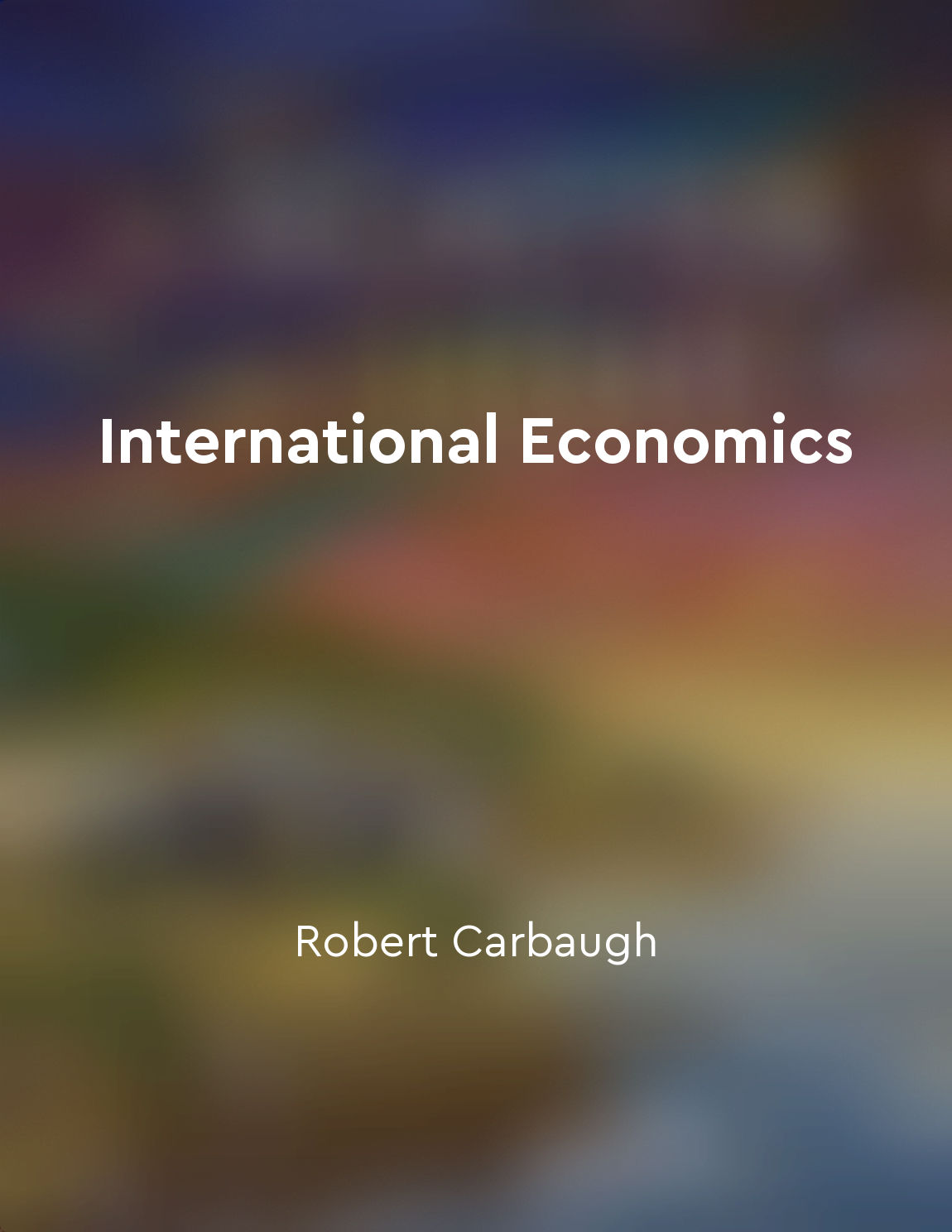Exchange rates impact international trade from "summary" of EBOOK: Macroeconomics by Rudiger Dornbusch,Stanley Fischer,Richard Startz
Exchange rates play a crucial role in determining the level of international trade between countries. When the value of one currency relative to another changes, it can affect the competitiveness of goods and services traded between nations. For example, if the value of the U. S. dollar strengthens relative to the Japanese yen, American goods become more expensive for Japanese consumers, leading to a decrease in demand for U. S. products. Conversely, Japanese goods become cheaper for American consumers, resulting in an increase in imports from Japan. This dynamic relationship between exchange rates and international trade can have significant implications for a country's economy. Fluctuations in exchange rates can impact the balance of trade, which measures the difference between a country's exports and imports. A strong currency can lead to a trade deficit as exports become more expensive for foreign buyers, while imports become cheaper for domestic consumers. On the other hand, a weak currency can boost exports by making them more affordable for foreign buyers, while raising the cost of imports for domestic consumers. Governments and central banks closely monitor exchange rates in order to manage their impact on international trade. They may intervene in currency markets to stabilize exchange rates or implement monetary policies to influence the value of their currency.- The relationship between exchange rates and international trade is complex and multifaceted. Changes in exchange rates can have far-reaching effects on a country's economy, influencing its trade balance, competitiveness, and overall growth prospects. As such, understanding the dynamics of exchange rates is essential for policymakers, businesses, and consumers alike.
Similar Posts

Market timing is difficult and often unsuccessful
Timing the market is a fool's errand, plain and simple. Many people believe they possess the clairvoyance required to predict w...
Continuous evaluation and adaptation are necessary
In the process of economic development, it is essential to constantly evaluate and adapt strategies and policies to address cha...
Human capital enhances economic productivity
Human capital refers to the knowledge, skills, experience, and attributes possessed by individuals that make them productive co...

The International Monetary Fund provides financial assistance
The International Monetary Fund is an international organization that was established with the purpose of promoting global mone...
Harmonization of trade laws is essential for global commerce
The harmonization of trade laws is a critical factor for the smooth functioning of global commerce. In today's interconnected w...
Risk management is critical for financial institutions
Risk management plays a crucial role in the operations of financial institutions. In the dynamic and complex environment of fin...
Understanding institutional investors is crucial for successful portfolio management
To effectively manage a portfolio, it is essential to have a deep understanding of institutional investors. Institutional inves...
The cost of capital influences investment decisions
In making investment decisions, firms must carefully consider the cost of capital. This concept represents the return that inve...

Bitcoin represents the future of money
Bitcoin represents the future of money not because it is a new technology, but because it is a return to an old monetary standa...
Collective learning drives human progress
Humans are unique in their ability to learn collectively from one another. This capacity for sharing and building upon knowledg...

